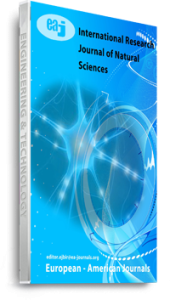Lack of access to clean and safe water is prevalent within many rural communities in developing countries in Africa, and the need for household water treatment is enormous. Moringa oleifera plant is a tropical plant known for its nutritional and medicinal properties. Moringa seeds have been widely used in traditional water treatment practices across many countries of Africa and the world. This study examines the physicochemical properties of the stem and the seed of the moringa plant to define its suitability for use in household water treatment. The moringa oleifera seeds and stems were pulverized into powdered forms and divided into two parts. The first parts were left in their raw state, and the second parts were calcined in a kiln at 800oC. The raw and calcined moringa seed and stem samples were subjected to phytochemical analysis and XRF characterization. Aqueous extracts of the raw and calcined moringa seeds and stems were used in laboratory-based coagulation tests; coagulation efficiencies were determined using turbidity reduction in treated water over time. The results show similar elemental constituents in the raw and calcined moringa seed and stem. The necessary phytochemicals present were higher in the moringa seed samples than in the stem samples, both raw and calcined states. The coagulation tests indicated some coagulation efficiency in both raw and calcined samples, with turbidity reduction of up to 25% in 90 minutes. This study revealed that the moringa stems compare favourably with the moringa seeds in their raw or calcined forms as a bio-coagulant in water treatment.
Citation: Erhuanga E. A., Arotupin, D. J., Amoo I. A., Kashim I. B. and Akinbogun T. L., (2022) Comparative Study of the Physiochemical and Coagulating Properties of Moringa Oleifera (Linn) Seeds and Stem for Use in Water Purification, International Research Journal of Natural Sciences 10 (3) 33-48
Keywords: Moringa oleifera, bio-coagulation-flocculation, household water treatment, phytochemicals, turbidity removal, water supply

